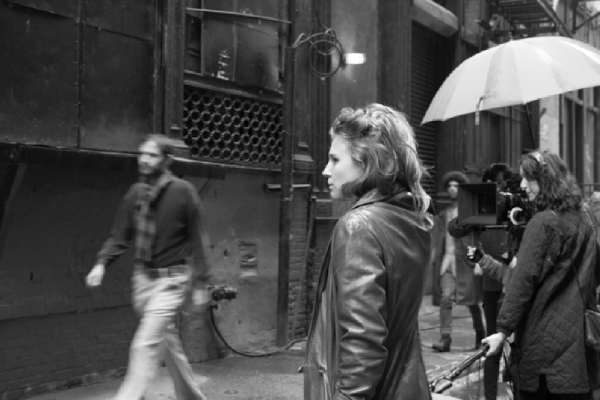This week we feature Elizabeth Nichols who transports us to a space of contemplation on the relationship between inner life and outer environment; details her appreciation for those who cut through dominant mediated narratives; and shares her experience growing up in a family of artists.
Elizabeth is currently a thesis student at Grad Film. We asked her a few questions and here’s what she had to say:
Where are you from and what is it like there?
I was born and raised in Princeton, New Jersey, paces away from the University. For the most part, it was the quiet, cerebral, intellectually electrified and typically homogenous place one might expect from a small college town. A beautiful place that left me mysteriously unsettled – a state of mind I was not able to put my finger on until I left. I grew up fascinated with art and literature and history; my way of experiencing a bigger world before I began to travel in it.
In Princeton, there were brief moments of community – but not nearly enough. I grew up in a family of artists and storytellers and we found community in an insular kind of way – sitting around a table for hours each night, debating, arguing, learning. Our home reflected our obsession with process, constantly in a state of experimentation from the inside out, often to the confusion and sometimes dismay of our neighbors.
Princeton bore in me an ineffable hunger to see more, to learn from people - not (just) books - to question what I saw and felt and learned in school, to find myself and my place in the world.
What or who is inspiring you right now and why?
“As for free will, there is such a narrow crack of it for man to move in, crushed as he is from birth by environment, heredity, time and event and local convention.” Lately, I’ve been carrying around the Unabridged Journals of Sylvia Plath. The journals start from when she was a student at Smith. She seemed to struggle with an out-of-place-and-time state of mind that feels so familiar to me. It seems, tragically, that the world was not ready for her mind. It’s a very strange experience, peering into such intimate and private reflections. As I read, I witness a mind evolve. The inherently present-tenseness of her journals create a sort of suspense I have never really felt with such intensity anywhere else. I’m fascinated by her attempts to reconcile a rupture that exists between her inner life and her environment. I can empathize with that, and believe it must be the experience of so many in this confusing world that we live in.
An attempt to process this rupture in my own life has brought me to consider the moments of intersection between the poetry and politics of the world around me. I have been particularly interested in how we have come to our understanding of the world, the inherited filter through which we experience our daily lives, often dictated by circumstance and environment. I’ve been fascinated by the power of the dominant narratives conveyed to us with such conviction through our education system and mass media. It is exhilarating and inspiring to me when I come across individuals who confront these narratives head-on – through art, literature, performance, activism. One activist in particular has inspired me lately - Amy Goodman - a journalist who produces the daily independent news program, Democracy Now! Her journalism, of course, reflects her progressive point-of-view, but what I appreciate most - beyond the depth and diversity of her coverage of complex issues - is her inclusion of the voices of ordinary people who are directly impacted by the events that take place in our world. While often saddened and frustrated by the reality we live in, I am inspired by artists and activists who are trying to do something about it.
What has been your most rewarding experience at NYU Tisch Grad Film so far?
I have found truly wonderful collaborators and mentors during my time at NYU. Beyond the people and the collaborations we’ve forged, I’ve found the curriculum of the program to be especially rewarding. For me, this program has offered space and opportunity to experiment with process. I’ve learned that each project - each story, each character - requires its own organic approach. Each project I’ve embarked on has changed me and my perspective in a profound way. I’m grateful to have this powerful tool to help me navigate, see, question and understand this world and my experience of it.
Visit Elizabeth’s website at www.elizabeth-nichols.com
